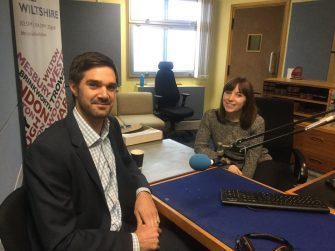Our very own immigration consultant, Steven Williams was interviewed by BBC Wiltshire radio earlier this month. The topic of discussion was immigration and why people come to the UK to work from overseas.
 Steven has been with us since 2007 and has extensive experience dealing with family based applications, citizenship and settlement, and specialises in corporate immigration.
Steven has been with us since 2007 and has extensive experience dealing with family based applications, citizenship and settlement, and specialises in corporate immigration.
BBC Wiltshire wanted to know why businesses might employ migrants and what the process is for doing so.
Some people may not realise that there are a set of immigration rules that need to be adhered to which are intricate, complicated and ever-changing. Steven told the listeners of BBC Wiltshire that “they are quite difficult to navigate but that’s what we are here to do; to help people understand and also help them to decipher what is actually quite a complex set of rules.”
Steven goes onto describe the process of how a company would employ a migrant worker;
“Companies will advertise for a vacant role that they have and during that recruitment process it will become clear to them that we don’t have the skills already here in the UK. From that advertising process, they will identify a migrant worker who fits the role, and that’s when they would come to us. We would assess to see if it can work, because you can’t apply for a visa for any job, there’s a list that the Home office have produced which they deem to warrant sponsorship and allow us to actually go ahead and make an application.”
Many people may assume that jobs are offered around the world before being offered to local people, however this is not the case. Steven explained “if somebody were to apply for the role who was an EEA or UK national and a migrant worker was to apply for the role, if they were both suitable, the employer has to offer the role to the EEA or UK national before offering it to the migrant worker.”
Sometimes though, there just aren’t the people here to do those jobs. Steven pointed out “what we see on a daily basis is that companies cannot find the right skills here. They will advertise for months and months and have a few applicants apply for the role who just aren’t suitable for what their requirements are.”
Some people may assume that for lower paid roles, it’s cheaper to find workers from further afield than to find British workers, however cost doesn’t come into it; “the list of roles [that were mentioned earlier] have a set salary rate which would help to stop employers from undercutting the market and using migrants as a way of finding cheap labour.”
A Tier 2 (general) allows skilled migrant workers to be sponsored at graduate level or above.
If you need advice on an immigration matter or have an application you need assistance with, please contact us on 01793 836010 or e-mail us: [email protected]
